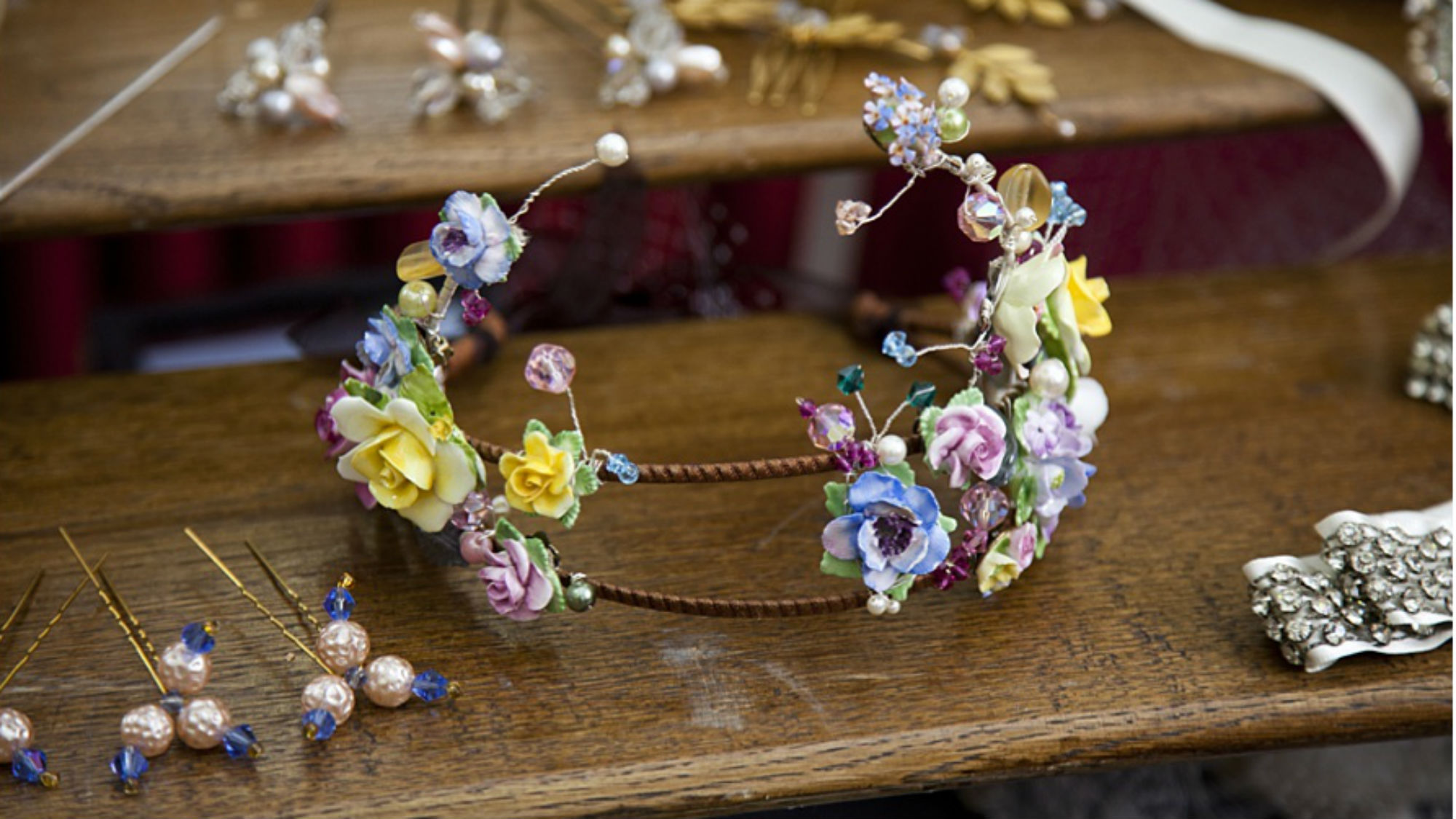7 things I’ve learned about starting a business from scratch
Top tips


Top tips
Kate Beavis, 44, from Cranfield, Bedfordshire, left her full time job in store design after enjoying an 18 year career. While on maternity leave she set up her online shop Your Vintage Life, selling fashion and home ware worldwide. Now, Kate runs The National Vintage Wedding Fair - here are her top tips for starting a business from scratch.
Start small
I started my business with just one vintage handbag. I bought it for 50p and sold it for £30 on an eBay auction, making a huge amount of profit from my first sale. I used the profit to buy more at a jumble sale and again sold them. Something this simple became the start of my business, but also it meant I started with the tiniest investment ever. Obviously, this isn’t always going to be the case and you may need more than one coin to start with, but my advice is to start small, with a low-risk investment. Set yourself a budget and a timeline – for example £200 and 6 months to make it work. When you make some profit, invest it back into the business and watch it grow. Of course, this means you won’t be taking much money out to start with, which is why it is a good idea to start while still in your full-time job.
Make a plan
When we start a business from scratch we often jump straight in, without a clear plan or direction; we just know we want to be our own boss, and not work 9-5. Before you take that jump, write down what it is you want to do but also want you want to be known for. I wanted to be known as a vintage expert, selling quality, beautiful items in a modern way. I ensured that every decision I made would add to that vision and that I took opportunities, even if they were unpaid (such as writing for a vintage magazine), to increase my reach within my field. It is also worth thinking about where you want to be in 5 years - this could be having your own shop on the high street, or working less hours so you can start a family – write it down and stick it on your wall to remind yourself of the direction you want to follow.

Videos you may like:
Video you may like:
Do your research
Check out what your competitors are doing, what their product or service is like, how their website looks and what they are doing on social media. While you don’t want to copy them, it is a good idea to see what they are doing well and not so well, as this will help form part of your plan. When I started, I spent hours researching websites and businesses asking myself who I aspired to be like, even companies that were not selling vintage. I looked beyond the visual too, focusing on their customer service. Ask yourself, who are your customers going to be? That may be unknown at this point but it is a good idea to try and establish who they are. How old are they, where do they live, what is their lifestyle like? Ask yourself as many questions as possible so that you are clear on who you are talking to on the website and social media. Your tone of voice, photography - all your branding will then be right for your target end user.
Get social
Once you have bought your URL, go to every social media platform and create an account, even if you don’t plan to use them all. There is nothing worse than someone sharing content on a networking site in your name, believe me! Once set up, write a strong biography and replicate it on every platform, sharing your website details and how you can be contacted. Ideally you need a presence on Facebook, Twitter, Instagram, Snapchat and Pinterest which can be done via free scheduling tools such as Hootsuite or by replicating the same piece of content across all of them. Once you have started the best thing you can do is engage with your audience, and don’t worry too much about the quantity of followers you have. It's better to have 100 fully engaged people who love what you do than 1000 disinterested people who couldn’t care less. Spend some time actively engaging with new people in your industry so that you can start to form a network who can help you and provide support when you need it. Share great images that represent your brand to draw people in. Follow the magazines that are relevant and speak to them! At the start, I got great press from 3 magazines within the first 2 months from networking on Twitter – it really does work!

Grow your tribe
My biggest regret when starting a business from scratch was that I didn’t start a mailing group as I felt my healthy social media following was enough. This meant that when I had a new product or a new service that I wanted to share I had to rely on the ever-changing algorithms of Facebook. Big Mistake. From the outset, start a newsletter group using a simple platform such as Mailchimp to speak to your customers without spamming them. Maybe offer incentives to join the list such as money off vouchers and use a pop up window online even though you may think they are ugly – they work!
Celebrity news, beauty, fashion advice, and fascinating features, delivered straight to your inbox!
Create content
It is not just customers that love reading content, it is the search engines too who reward you by pushing you up the search pages. Create regular content on your website in the form of a blog, even if you feel that you have nothing to say. Think about what questions your customers will be writing into a search request and then create a blog post answering this query. I started my blog in 2010 as a way to support my product, creating content about the history of my vintage items that I had for sale, how to care for them and ideas for displaying them. Never did I plan for the blog to overtake the online shop but this didn’t matter as it fitted into my original plan of being a vintage expert.

Be brave
Finally, you need to be brave to start your own business from scratch, you need to believe in yourself and your idea and really go for it. Take some risks along the way and say yes to collaborations and opportunities; remember my writing for free for a magazine mentioned earlier? This lead to getting a book deal in 2013. I took the risk of writing to Paloma Faith asking her to write my foreword thinking I had nothing to lose – and she said yes! Running your business isn’t always easy and sometimes, especially at the start, you end up working far more hours than you did in your 9-5 job. Set yourself some rules at the beginning about when you do and don’t work. Try and get a good work life balance so that you can enjoy the flexibility being your own boss gives you.
